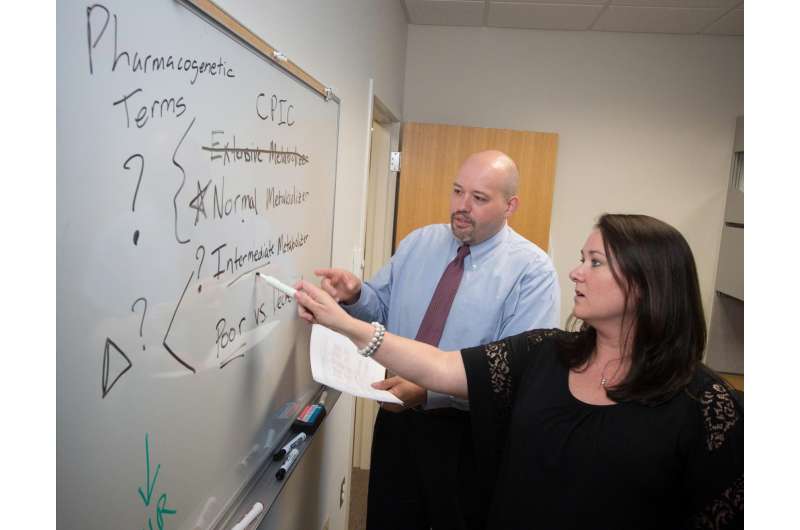Pharmacogenetics experts establish common vocabulary in bid to advance precision medicine

Experts led by St. Jude Children's Research Hospital have tackled a language barrier that is an obstacle to using precision medicine to enhance medication safety and effectiveness - the lack of standard pharmacogenetic terminology. The results appear today in the journal Genetics in Medicine.
Pharmacogenetics is the study of how genetics, particularly genetic variations in single genes, influences how individuals respond to drugs, including their risk for serious side effects or likely benefit. Now a national panel of pharmacogenetics experts from clinical laboratories, research and patient care has sifted through dozens of terms and reached a consensus on a vocabulary for reporting clinical pharmacogenetic test results.
"We hope that establishing standard terminology will encourage more widespread inclusion of pharmacogenetic results in the electronic health records of patients to help realize the promise of precision medicine to individualize patient care," said first and corresponding author Kelly Caudle, Pharm.D., Ph.D., of the St. Jude Department of Pharmaceutical Sciences. She is coordinator of the Clinical Pharmacogenetics Implementation Consortium (CPIC), the National Institutes of Health (NIH) supported group that spearheaded the project and is led by investigators from St. Jude and Stanford University.
The gene TPMT is an example of how words matter in pharmacogenetics. The gene encodes instructions for an enzyme that helps break down chemotherapy agents called thiopurines. Differences in the DNA that make up TPMT mean a small percentage of individuals do not make a functional enzyme. At standard doses, they are at high risk for serious side effects from the drugs.
Caudle and her colleagues identified 14 terms that medical testing laboratories, researchers and others use to describe the high-risk TPMT variations. The terms included "deficient function," "no activity," "homozygous deficient" and "absent activity." Using an established consensus-building method that included multiple rounds of surveying, more than 90 percent of participating experts agreed to replace those descriptions with a single term, "poor metabolizer."
Participants reached consensus on one set of terms to describe how gene variations affected function and other standardized terminology to describe how the variations likely impact clinical care, including drug metabolism and transport.
"Inconsistent terms can be confusing to clinicians, laboratory staff and patients," said senior author James Hoffman, Pharm.D., an associate member of the St. Jude Pharmaceutical Sciences department. "The lack of standard vocabulary has been a major obstacle to incorporating pharmacogenetic results in the patients' electronic health record to help guide prescribing."
The standardized pharmacological terms included in this report have been endorsed by the Association for Molecular Pathology, whose membership includes more than 2,000 laboratory medicine professionals worldwide. The recommendations will be distributed to pharmacogenetic testing laboratories, professional organizations and others, including dozens of institutions and commercial clinical laboratories worldwide that belong to CPIC, the project's sponsor.
Terminology will be revised and expanded as additional information becomes available and the specialty grows, Caudle said.


















